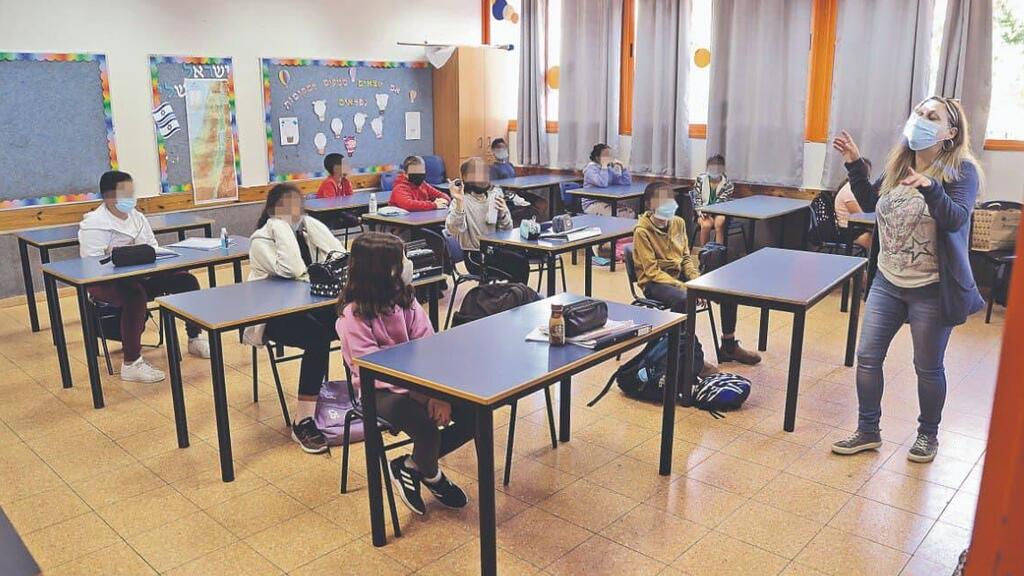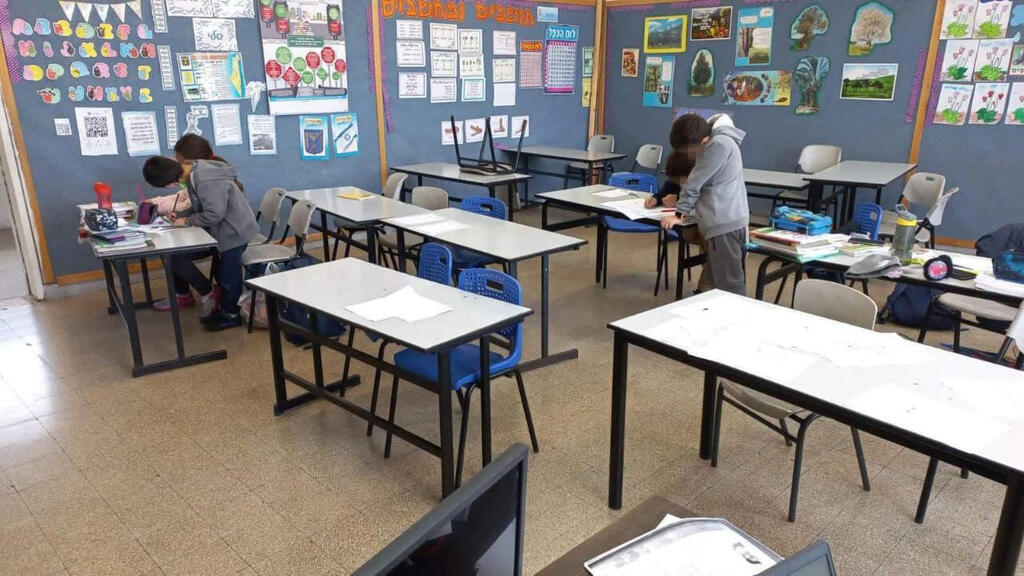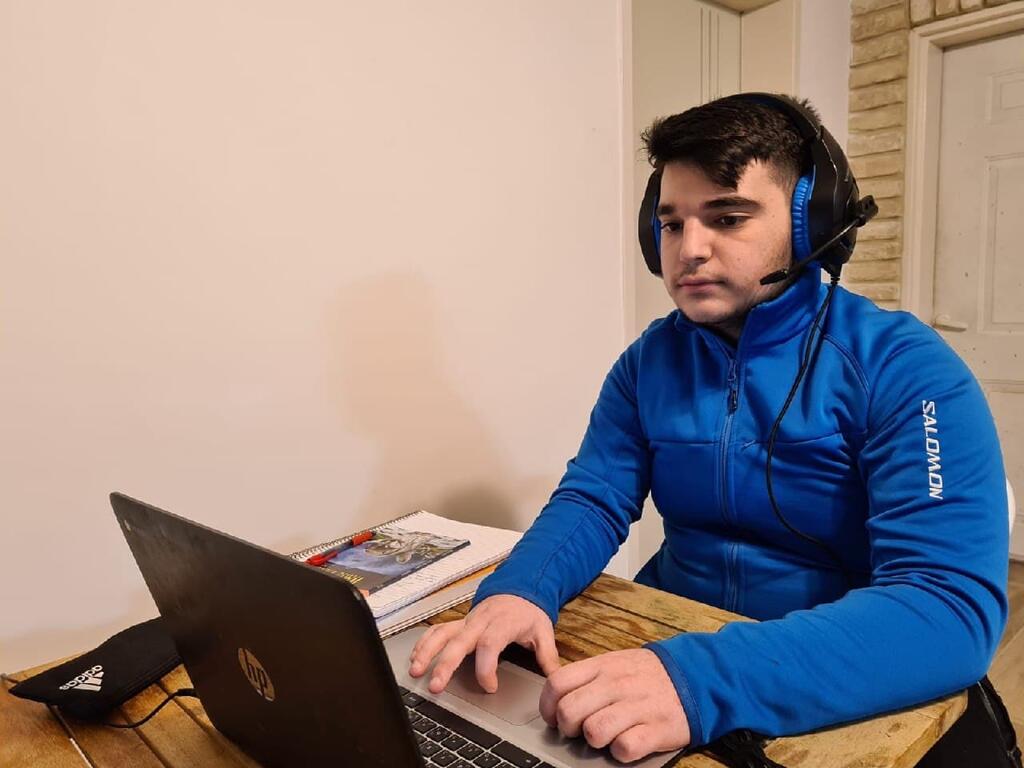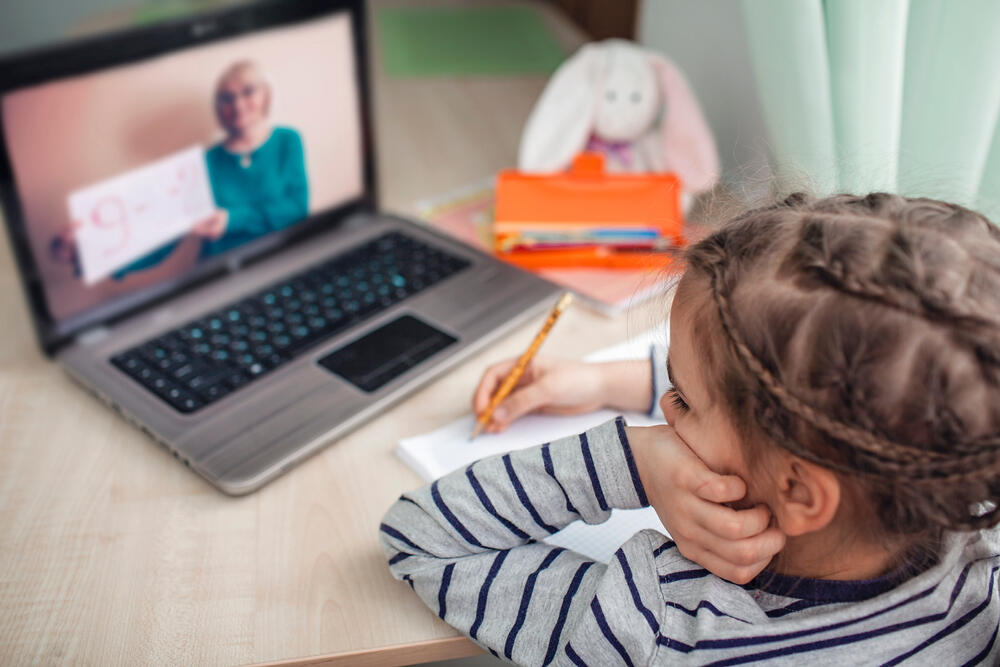Three weeks into the new year the Omicron variant is spreading at high speed in Israel. Schoolchildren are at high risk of infection since the share of young people who are vaccinated is relatively low.
More and more children have been forced to isolate at home because they or classmates have come down with the novel coronavirus.
Even under the Health Ministry’s recently relaxed isolation guidelines, it has been difficult for schools to find a stable method of learning. Most schools have at least partially adopted remote learning to keep children at home during the pandemic.
In an effort to address this problem, Prime Minister Naftali Bennett announced on Thursday evening that mandatory quarantine for schoolchildren who were exposed to coronavirus carriers will be scrapped entirely, starting next Thursday, January 27.
Children aged 0-18 will no longer need to isolate after being exposed. Instead, they will need to undergo two antigen tests at home each week – on Sunday and Wednesday morning – and present negative results when entering school. Those who test positive for the virus will still need to isolate until they test negative.
All this raises an important question: What impact will COVID-19 have on students in the long run?
Students have been learning from home, on and off, for two years already and educators are concerned that certain gaps may have developed as a result.
A high school teacher at Jerusalem’s Hand in Hand school expressed this concern, “I just see the seventh-graders: Their Hebrew is bad, they don’t write well, they don’t do well. The kids did not learn everything they needed to learn in comparison to the normal situation.”
Joy Benatov, a clinical psychologist and assistant professor at the University of Haifa, has seen these gaps first-hand.
“When I spoke to preschool, middle and high school teachers, they told me that they noticed that more students had a lot of emotional difficulties and they had gaps in their academic skills,” Benatov said.
The situation is more problematic for younger children because they are heavily reliant on their teachers and on the school, she said.
“For example, first-graders are learning to write and to read and they should be physically present with the teacher, so the teacher is able to evaluate them and their skills correctly. It’s vital,” Benatov said.
Dr. Enas Nasser, dean of the Faculty of Educational Science at Al-Quds University, disagrees. She said that remote learning offers distinct advantages.
“Remote learning has encouraged students to participate more, and it encouraged teachers to be more flexible and considerate with students. Some teachers used to give classes at three or four o’clock, after school hours, to fit the students’ schedule,” Nasser said.
Prof. Dan Ben-David, from the Department of Public Policy at Tel Aviv University and the founder of the Shoresh Institution for Socioeconomic Research, expressed concern regarding children from poorer families, saying they will inevitably suffer more from the anti-COVID measures.
“The situation exacerbates an existing gap because the kids whose parents are relatively less educated tend to do worse in school and their achievement levels are lower in general. Their problems are worse in Israel because the schools are worse in overcoming the problems from home, and on top of that, we have the COVID-19 and have to study from home and do it in an environment that is not conducive to studying. It hurts these kids even more,” Ben-David said.
Benatov, despite being hopeful about closing these gaps, said it is the older students who will suffer the worst educational consequences of COVID-19.
“Filling the gaps will be harder on the students who are in their final years of high school because they don’t have the time to make up for the skills they have missed, which means that they need to work much harder when they enter university,” she said.
Ben-David said one approach that might at least minimize the damage the pandemic has caused and reduce the need for remote learning would be “opening up the schools to have kids receive vaccination in schools.” But, he added, “I am still hesitant regarding this.”





